When To Add Compost To The Garden (Now or Later?)
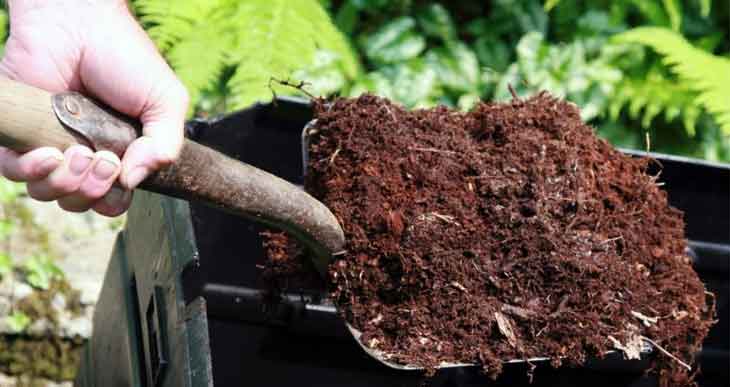
It’s time! Your compost is finally ready.
But just because your compost is good to go doesn’t mean it’s the perfect moment to add it to your garden.
You’ll get better results from your compost if you wait till the time’s right to use it.
Coming up: Your schedule for the top times to add compost to different parts of your garden.
When Should I Add Compost To My Garden?
An ideal time to add compost to your garden is in the spring every year. Another good time to use compost is during the fall. You should be adding compost at the start of the growing season or in anticipation of the next one.
This will encourage plant growth by enriching the soil, promoting biodiversity, helping prevent erosion, and retaining moisture.
Compost makes your soil healthier, more nutrient-dense, and increasingly pleasant to plant in with repeated applications over time. So get into the habit of adding nourishing compost to your garden every year.
Are you eager to know when to add compost to your veggie patch, raised beds, or rose bushes? Hold on! First, check that your compost definitely is fully finished.
Signs that your compost is finished and ready to use:
- It’s a rich shade of brown with no food scraps or garden wastes you can recognize.
- It feels crumbly.
- It smells sweet and earthy.
So, your compost is entirely done and fit for your garden?
Great! Here’s when to add it to the different areas.
When To Add Compost To Soil
Mix compost into your soil in the spring or fall. Composting in the spring will give a boost to new plants. Adding compost in the fall conditions the ground by creating a healthier environment.
If you want to enrich your soil, add a portion of compost every spring. Work about an inch of compost into the first few inches of soil for an annual nourishing treat.
Add your compost in the fall if your goal is to improve your soil’s structure. Then, using a fork, mix an inch or two of compost about 8 inches deep into the earth and let it work its magic underground.
When To Add Compost To Raised Beds
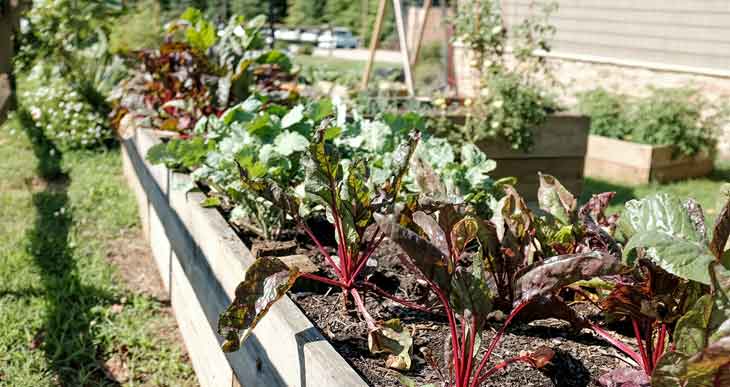
A good time to add compost to raised beds is before the first growing season in springtime or when plants start dying back in October.
Prepare your raised beds as the growing season starts by filling them with equal amounts of topsoil, sand, and compost. The compost will add plenty of nutrients, boosting the chance of an impressive harvest.
In the fall, cover your beds in 3 to 6 inches of compost (shredded leaf compost is ideal) to protect and enrich the soil during winter.
When To Add Compost To A Vegetable Garden
There are perks to adding compost to vegetable gardens at the beginning and near the end of the year.
In the springtime, work 1 to 3 inches of compost into the top 4 inches of the soil in planting beds. Depending on your crops’ nutritional needs, you might want to add more compost during the growing season. For example, tomatoes, corn, and squash tend to be compost-gobblers. Also, add compost around plants as mulch.
If you’re blessed with a growing winter veggie patch, mix another 1 to 3 inches of compost into the top 4 inches of soil again in fall.
When To Add Compost To A Lawn
Schedule your lawn’s compost application for spring or fall.
Are you keen to get lusher grass? Feed it some nourishing compost in late spring or early fall. Sprinkle a top dressing of about a quarter of an inch (any more might suffocate your grass) of sifted compost over your lawn, then add lawn seeds to fill out sparse areas.
Make sure you use fine compost for this. You can sift homemade compost with a wheelbarrow sifter like this. (Amazon)
Note: one of the risks of using homemade compost on lawns is if it contains weed seeds. Most home composting methods do not heat up enough to kill weed seeds. If in doubt, use a guaranteed commercial compost instead.
When To Add Compost To Roses
Roses grow better with a compost boost during spring or fall.
In spring, mix compost into the soil before planting new roses or add 1 to 2 inches of compost to existing rosebushes’ bases.
If you’ll be planting roses in late summer or early fall, use compost as a protective mulch. To preserve roses from winter’s harshness, add a thick layer (between 6 to 8 inches) of loose compost around their bases (this is a process known as “mounding roses”).
Further reading: best compost for roses
When To Add Compost To Fruit Trees
Maximize fruit trees’ growth by giving them compost in the springtime.
Lightly water the ground around your trees, then add a ring of compost (an inch or so thick) about 2 feet away from the trunks. Try to rake the compost into the top 2 inches of the soil, then cover the area with mulch to insulate the roots.
It’s possible that mulching with compost is all you need to do to care for your fruit trees, with no added fertilizer. The fruit quality can be reduced because of excessive fertility (lots of leaves but little fruit).
When To Add Compost To Perennial Garden
Fall is the best time to add compost to perennial gardens.
Apply a top dressing of about an inch or 2 of compost. You can work it into the top few inches of soil or just leave it on top as mulch.
Applying compost in autumn will give perennials a healthy boost for the coming spring. But you probably only need to do this every couple of years.
Working around perennials can be tricky. If the ground around perennial plants is compacted, you could try vertical mulching. This is a technique usually reserved for trees, but the principle works well at any scale. Just drill multiple holes around your plants using a gardening auger like this. Push some compost into the holes, and your job is done!
Should I Add Compost To The Garden In Fall Or Spring?
You might be surprised that I suggest adding compost to your garden in fall or spring. Some gardeners believe you should give your plants compost during the spring, and that’s it. Others swear there are benefits to spreading compost around during the fall.
I agree it makes sense to add compost to your garden in spring. But using compost during the fall also has value. Freshly applied compost takes time to enrich the soil, so it’s not as if compost’s nutrients will be gone by springtime if you add it during the fall.
Neatening up your garden and adding compost in the fall is therapeutic.
You clear away what’s left of the old growing season and prepare for (and dream of) what will come in the new.
Should I Add Compost To the Garden Before Winter?
In the fall, add compost mulch to your bare soil to keep it healthy during wintertime.
Add around 3 to 6 inches of compost (even shredded leaves or clean straw will help) to the soil to stop the top layer from being removed while also boosting the soil’s nutrients.
Also, you may have a lot of immature compost in the autumn. Adding this directly to plants can be harmful because of nutrient lockout. Unfinished compost uses up a lot of nitrogen, leading to plants being deprived of nutrients. Digging in some compost to your garden beds in the fall means it will be mature enough in the spring.
Do You Add Compost Before Or After Planting?
Wherever possible, it is best to add compost to the soil before planting new crops.
Place about 4 inches of compost onto your garden beds, then work the compost into the top few inches of the beds using a fork or spade. Aim to add the compost to your beds between 3 and 6 weeks before planting.
When it comes to planting a new lawn, why not add compost before and after planting (as suggested earlier)? Place an inch or 2 of compost wherever you want to grow your turf, rake it into the soil, scatter your seeds, and add a quarter-inch of compost.
Is It Too Late To Add Compost To a Garden?
If it’s winter, it’s too late (or too early) to add compost to your garden.
I know the excitement of spring being just around the corner, the wonderful experience of nourishing your garden with compost so near. But we need to hold out a little longer.
If you add compost to soil drenched from winter rain or snow, you’ll likely compact the soil, limiting plant growth instead of encouraging it. Spare yourself a gardening nightmare by saving your compost for springtime!


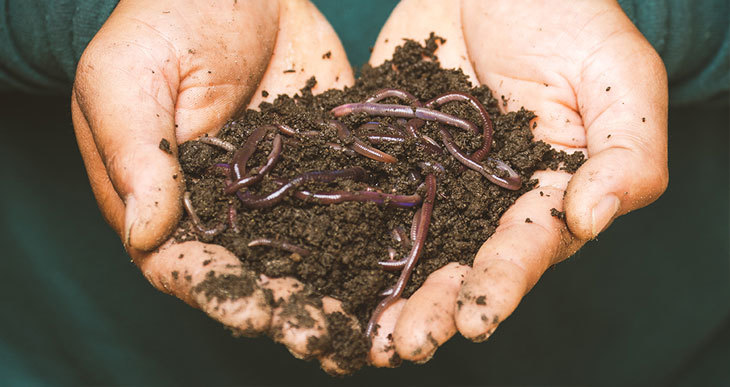
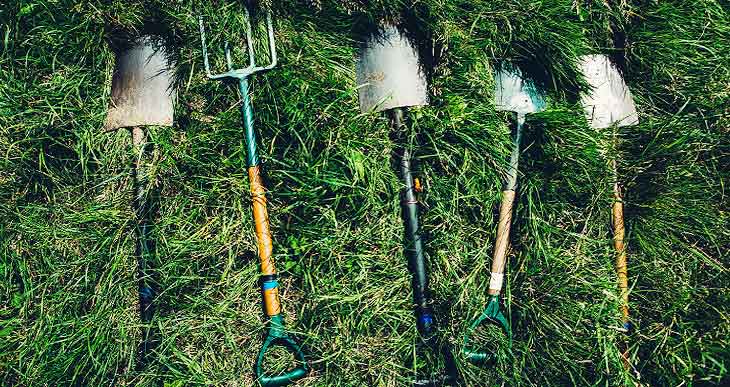
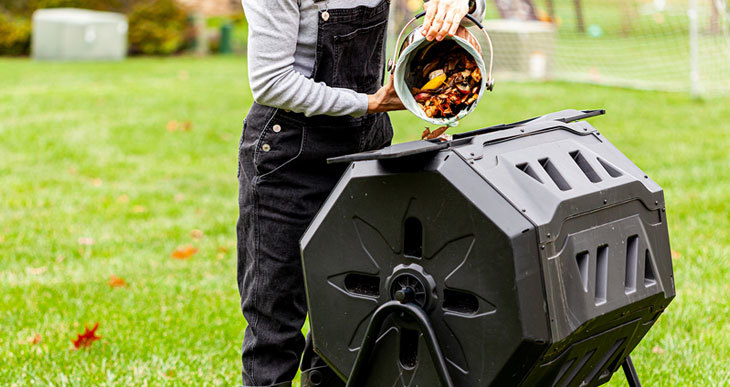
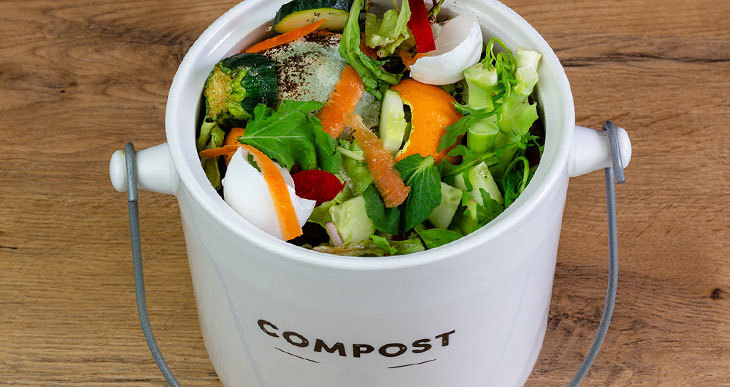
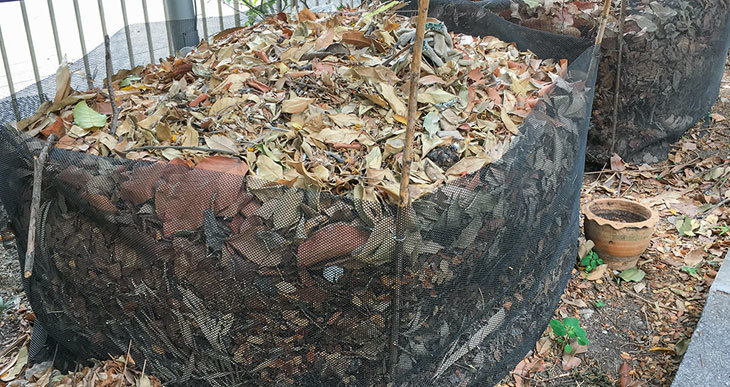
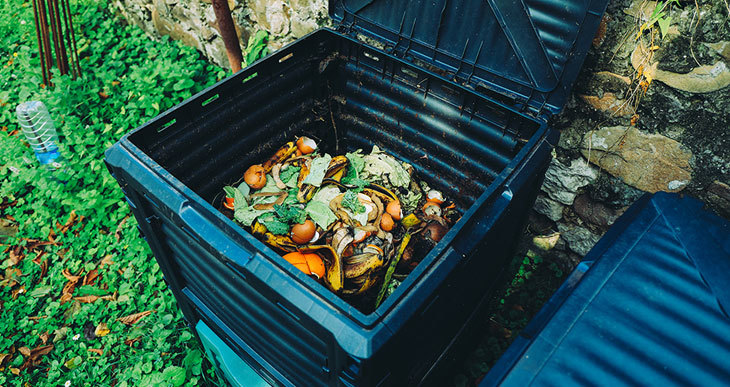
Thank you. Good advice.
Happy to help Rachel!